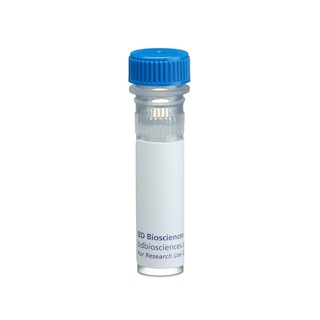-
Reagents
- Flow Cytometry Reagents
-
Western Blotting and Molecular Reagents
- Immunoassay Reagents
-
Single-Cell Multiomics Reagents
- BD® OMICS-Guard Sample Preservation Buffer
- BD® AbSeq Assay
- BD® OMICS-One Immune Profiler Protein Panel
- BD® Single-Cell Multiplexing Kit
- BD Rhapsody™ ATAC-Seq Assays
- BD Rhapsody™ Whole Transcriptome Analysis (WTA) Amplification Kit
- BD Rhapsody™ TCR/BCR Next Multiomic Assays
- BD Rhapsody™ Targeted mRNA Kits
- BD Rhapsody™ Accessory Kits
-
Functional Assays
-
Microscopy and Imaging Reagents
-
Cell Preparation and Separation Reagents
-
- BD® OMICS-Guard Sample Preservation Buffer
- BD® AbSeq Assay
- BD® OMICS-One Immune Profiler Protein Panel
- BD® Single-Cell Multiplexing Kit
- BD Rhapsody™ ATAC-Seq Assays
- BD Rhapsody™ Whole Transcriptome Analysis (WTA) Amplification Kit
- BD Rhapsody™ TCR/BCR Next Multiomic Assays
- BD Rhapsody™ Targeted mRNA Kits
- BD Rhapsody™ Accessory Kits
- United States (English)
-
Change country/language
Old Browser
This page has been recently translated and is available in French now.
Looks like you're visiting us from {countryName}.
Would you like to stay on the current country site or be switched to your country?





Western blot analysis of DEK on a Jurkat cell lysate. 1:500 (lane 1), 1:1000 (lane 2), 1:2000 (lane 3) dilution of the anti- human DEK antibody.

Immunofluoresence staining on 293 cells.


BD Transduction Laboratories™ Purified Mouse Anti-Human DEK

BD Transduction Laboratories™ Purified Mouse Anti-Human DEK

Regulatory Status Legend
Any use of products other than the permitted use without the express written authorization of Becton, Dickinson and Company is strictly prohibited.
Preparation And Storage
Product Notices
- Since applications vary, each investigator should titrate the reagent to obtain optimal results.
- Please refer to www.bdbiosciences.com/us/s/resources for technical protocols.
- Caution: Sodium azide yields highly toxic hydrazoic acid under acidic conditions. Dilute azide compounds in running water before discarding to avoid accumulation of potentially explosive deposits in plumbing.
- Source of all serum proteins is from USDA inspected abattoirs located in the United States.
Companion Products


.png?imwidth=320)
The (6;9) chromosomal translocation is associated with acute myelogenousleukemia (AML) and fuses the dek and can genes. This results in expression of the oncogenic DEK-CAN fusion protein, consisting of the N-terminal two-thirds of DEK and the C-terminal two-thirds of CAN. Although, on its own, DEK exhibits anti-oncogenic properties, the DEK-CAN chimera appears to be oncogenic. DEK is a nuclear protein with a calculated molecular weight of 42-43 kD, that can be observable at 50 kD, and reportedly exhibits no substantial homology to any known protein sequences. Although it contains 42% charged amino acids and multiple acidic sequences, specific structural features have yet to be identified. In addition to its involvement in AML, DEK is associated with several disease states, such as juvenile rheumatoid arthritis where it is an autoantigen. Efforts to define the cellular function of DEK led to its identification as the pets factor. The peri-ets (pets) site is a TG-rich element between the two Elf-1 binding sites of the HIV-2 enhancer. The pets site mediates transcriptional activation in response to T cell stimulation. Thus, DEK is a site-specific DNA binding protein that functions in transcriptional regulation and signal transduction.
This antibody is routinely tested by western blot analysis. Other applications were tested at BD Biosciences Pharmingen during antibody development only or reported in the literature.
Development References (3)
-
Fu GK, Grosveld G, Markovitz DM. DEK, an autoantigen involved in a chromosomal translocation in acute myelogenous leukemia, binds to the HIV-2 enhancer. Proc Natl Acad Sci U S A. 1997; 94(5):1811-1815. (Biology). View Reference
-
Fu GK, Markovitz DM. Purification of the pets factor. A nuclear protein that binds to the inducible TG-rich element of the human immunodeficiency virus type 2 enhancer. J Biol Chem. 1996; 271(32):19599-19605. (Biology). View Reference
-
von Lindern M, Fornerod M, van Baal S, et al. The translocation (6;9), associated with a specific subtype of acute myeloid leukemia, results in the fusion of two genes, dek and can, and the expression of a chimeric, leukemia-specific dek-can mRNA. Mol Cell Biol. 1992; 12(4):1687-1697. (Biology). View Reference
Please refer to Support Documents for Quality Certificates
Global - Refer to manufacturer's instructions for use and related User Manuals and Technical data sheets before using this products as described
Comparisons, where applicable, are made against older BD Technology, manual methods or are general performance claims. Comparisons are not made against non-BD technologies, unless otherwise noted.
For Research Use Only. Not for use in diagnostic or therapeutic procedures.